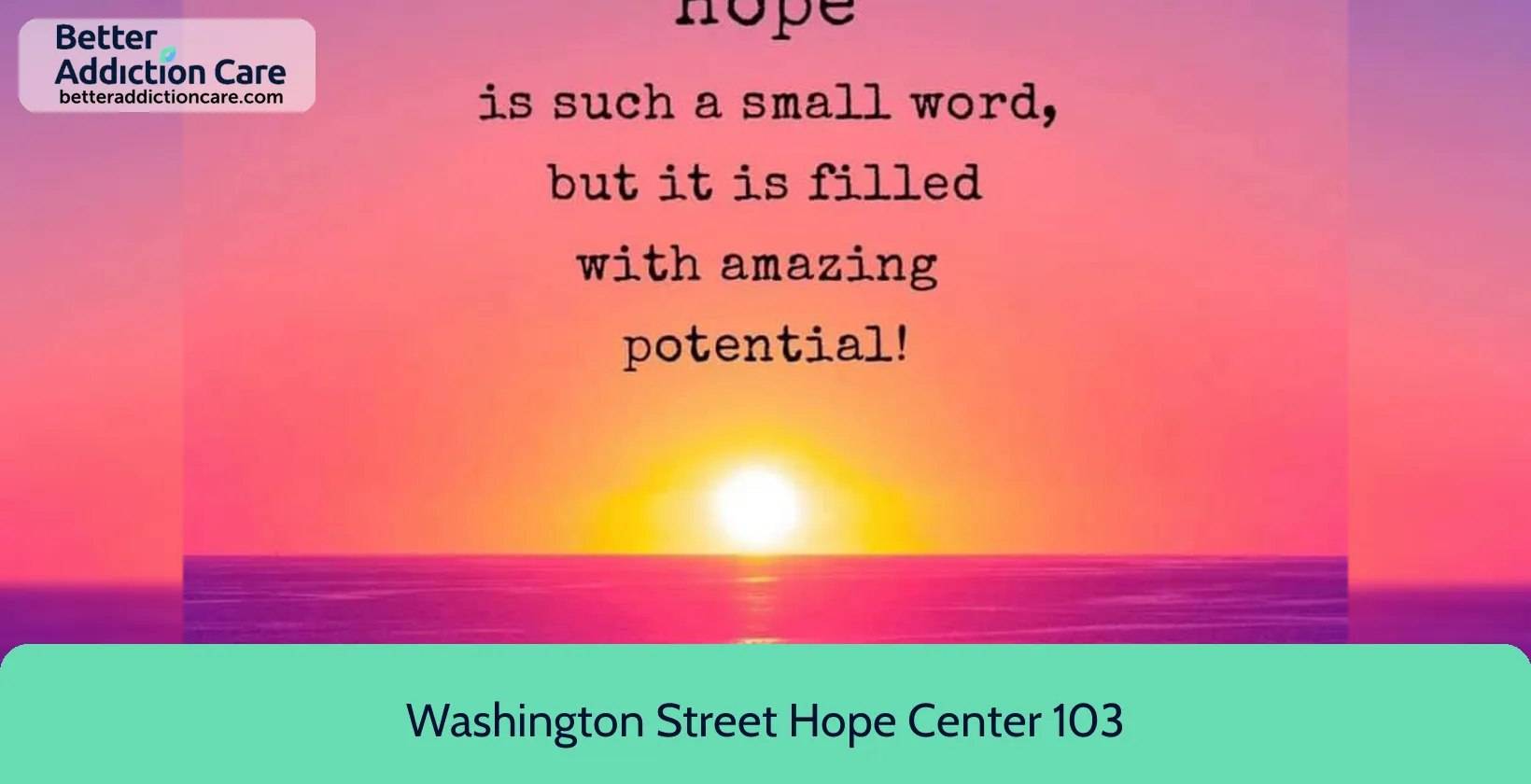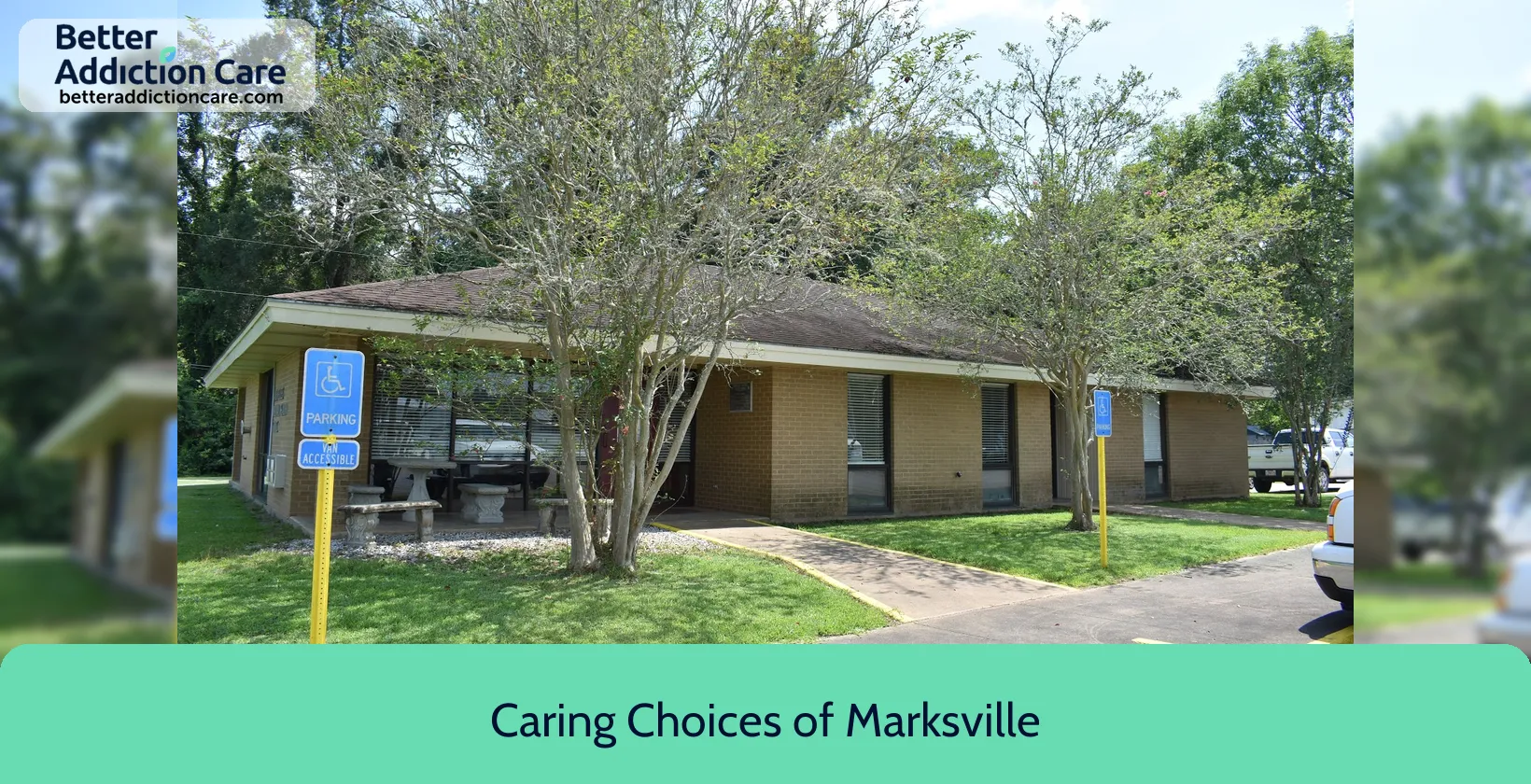Caring Choices of Marksville
Overview
Caring Choices of Marksville is a mental health treatment center for people seeking treatment near Avoyelles County. As part of their treatment modalities for recovery, Caring Choices of Marksville provides cognitive behavioral therapy, dialectical behavior therapy, and integrated mental and substance use disorder treatment during treatment. Caring Choices of Marksville is located in Marksville, Louisiana, accepting cash or self-payment for treatment.
Caring Choices of Marksville at a Glance
Payment Options
- Cash or self-payment
- Medicaid
- Medicare
- Private health insurance
Assessments
- Screening for tobacco use
- Comprehensive mental health assessment
- Comprehensive substance use assessment
Age Groups
- Children/adolescents
- Young adults
- Adults
- Seniors
Ancillary Services
- Case management service
- Chronic disease/illness management
- Diet and exercise counseling
- Education services
- Family psychoeducation
Highlights About Caring Choices of Marksville
6.65/10
With an overall rating of 6.65/10, this facility has following balanced range of services. Alcohol Rehabilitation: 8.00/10, Drug Rehab and Detox: 6.00/10, Insurance and Payments: 6.00/10, Treatment Options: 6.61/10.-
Alcohol Rehabilitation 8.00
-
Treatment Options 6.61
-
Drug Rehab and Detox 6.00
-
Insurance and Payments 6.00
Treatment At Caring Choices of Marksville
Treatment Conditions
- Mental health treatment
- Alcoholism
- Substance use treatment
- Co-occurring Disorders
Care Levels
- Outpatient
Treatment Modalities
- Cognitive behavioral therapy
- Dialectical behavior therapy
- Integrated Mental and Substance Use Disorder treatment
- Telemedicine/telehealth therapy
- Smoking/vaping/tobacco cessation counseling
Ancillary Services
Languages
- Sign language services for the deaf and hard of hearing
Additional Services
- Pharmacotherapies administered during treatment
- Mentoring/peer support
- TB screening
Get Help Now
Common Questions About Caring Choices of Marksville
Contact Information
Other Facilities in Marksville

6.77

6.83
Browse rehab centers near Marksville and in other cities across Louisiana
DISCLAIMER: The facility name, logo and brand are the property and registered trademarks of Washington Street Hope Center 103 South Main Street, and are being used for identification and informational purposes only. Use of these names, logos and brands shall not imply endorsement. BetterAddictionCare.com is not affiliated with or sponsored by Washington Street Hope Center 103 South Main Street.

